Buy Wine by the Case
17 products

- Red Wine
- Grenache, Mourvèdre / Monastrell, Samso / Carignan, Syrah
- Sustainable, Vegan-Friendly
- Dry
- Medium Bodied
- 750ml
- 14.5% alc./vol
About the Winery
Domaine Andre Aubert
At the very heart of the Rhône Valley, at the northerly tip of the Southern Rhône, lie the vineyards of Grignan-Les-Adhémar. The chances are you haven’t heard the name before, few people have, but the wines are worth seeking out. It’s not a new wine region – vines have been planted here since around 500BC but it is a new name (formerly known as Côteaux-du-Tricastin). Domaine André Aubert, has been formed over decades and today comprises of more than 280 hectares spread from north to south of the prestigious Southern Rhone Valley on the appellations Côtes du Rhône, Côtes du Rhône villages, Visan, and Grignan-les-Adhémar.
Press Reviews
Wine Align
90 points - David Lawrason
This is new appellation (formerly Coteaux de Triscatin) is the northernmost in the southern Rhone. It uses the typical southern Rhone varieties, but none can be more than 80% of the blend. This is a quite elegant, well structured, mid-weight red with some stony minerality, lifted pepper and savoury notes. Not as opulently fruity and rich as many peers, yet very tidy and balanced. The length is very good to excellent. Tasted March 2022
- Rosé Wine
- Cinsault, Grenache, Syrah
- Organic, Vegan-Friendly
- Dry
- Medium Bodied
- 750ml
- 13.5% alc./vol
About the Winery
Mas Carlot

Mas Carlot is situated in the south of the Rhône Valley, extending across 76 hectares of pebbly land southeast of Nîmes. Originally a 17th century farm, this beautiful estate was resurrected in the 1960's by the Blanc family—it is currently run Cyril Mares of the neighbouring and equally reputable property, Mas Bressades.
The appellation of Costières de Nîmes used to be considered part of eastern Languedoc but the climate, soil, topography and wine are far closer to those just over the river in the Southern Côtes du Rhône. It is now a region very much on the up and is widely recognized as a great source of excellent value wine.
- Red Wine
- Grenache, Samso / Carignan, Syrah
- Sustainable, Vegan-Friendly
- Dry
- Residual Sugar: 2 g/l
- Full Bodied
- 750ml
- 14.50% alc./vol
About the Winery
Clos del Rey
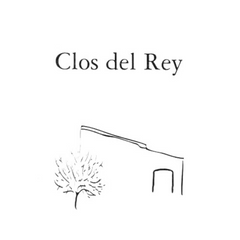 In the foothills of the Pyrénées Mountains, not far from the Mediterranean sea, Clos del Rey is situated in the high altitude hills over the tiny village of Maury. The estate has been owned and farmed by the Montagne family for generations. The vineyard itself is nestled among a protected area of garrigues (rosemary and thyme). The vines of up to 120 years old are allowed to grow natural and untrained, in the old-fashioned way, known as the goblet or bush style. However, it is what lies beneath the vineyard that lends much of the character and complexity found in their wines. Julien Montagne makes complex wines that truly represent his vineyards and his Catalan roots--you can almost smell the sun in the glass.
In the foothills of the Pyrénées Mountains, not far from the Mediterranean sea, Clos del Rey is situated in the high altitude hills over the tiny village of Maury. The estate has been owned and farmed by the Montagne family for generations. The vineyard itself is nestled among a protected area of garrigues (rosemary and thyme). The vines of up to 120 years old are allowed to grow natural and untrained, in the old-fashioned way, known as the goblet or bush style. However, it is what lies beneath the vineyard that lends much of the character and complexity found in their wines. Julien Montagne makes complex wines that truly represent his vineyards and his Catalan roots--you can almost smell the sun in the glass.
Press Reviews
Wine Align
91 points (2020) - John Szabo
Rather classic, scorched earth and wild resinous herb, burning rosemary-inflected grenache-based red from the deep south of France in the Roussillon, not yet at prime in my view. It will take some time for it to unwind, to shed the tannic cloak and oxygenate the smoky, wooly reductive nature. It's a beast of a wine at the moment, surely big, burly and concentrated, a genuine mouthful at the price. Worth buying a few bottles to stick in the cellar and try again in 2-3 years, or keep likely into the early '30s. Tasted May 2023
90 points (2020) - Megha Jandhyala
This is a rich, ripe blend from Maury Sec, an appellation in the Agly Valley in Roussillon that was authorized for the production of dry red wines in 2011. The nose is inviting and appealing, with notes of cherry compôte, black raspberries, garrigue, and a subtle mineral aroma that reminds me of wet cement. It is medium-bodied, with grainy, drying tannins and balanced acids. I really like the lush fruit on the mid-palate that recede gracefully, leaving a subtle bitterness and warmth in their wake. Tasted September 2022.
90 points (2020) - David Lawrason
The village of Maury is better known for its sweet 'vins doux naturel'. This dry red based on grenache, carignan and syrah shows the energy, or a certain internal combustion, I associate with the carignan grape. The nose is quite lifted with red fruit (raspberry, plum) some spice and minerality. It is medium-full bodied, sour-edged and firmly tannic with some heat. Quite peppery and meaty (charcuterie) on the finish. The length is excellent. Tasted Sept 2022
90 points (2020) - Sarah d'Amato
From a relatively new appellation in the southwestern region of Roussillon designated in 2011 to allow producers to craft dry reds in addition to the more famous Vin Doux of Maury. In the midst of all the sweetness of the region, Clos del Rey makes only dry wines. This plush incarnation features flavours of liquored black cherry, a chalky minerality and tender tannins. Ripe but with a lick of minerality that helps to provide balance along with a welcome degree of bitterness. Some bitterness helps curb the perception of alcohol too. An arresting yet youthfully broody wine. Tasted September 2022.
- Red Wine
- Cabernet Sauvignon, Grenache, Merlot, Tempranillo
- Organic, Sustainable, Vegan-Friendly
- Dry
- Full Bodied
- 750ml
- 14% alc./vol
About the Winery
Pago Aylés

Pago Aylés was founded by Federico Ramón, who in 2003 began his dream of classifying this unique land as the first Vino de Pago in the Aragon region. In the Spanish wine quality pyramid, the Pago stands as a top tier or grand cru winery. Just before Federico died, his dream came true in 2010, as Aylés became the 10th Vino de Pago in Spain.
Today his three children continue to produce wines from this special land. The vineyard site has a long history of winemaking, dating back to the 12th century by Spanish monks. Influenced by the River Huerva and the Monte San Pablo mountain, the soil is a mixture of clay, limestone and chalk – ideal for making high-quality wine. Caves, ravines and old river beds can be found all over the estate, which is brimming with wildlife.
Press Reviews
Wine Align
Vintage 2020 - 90 points - John Szabo, MS
Deeply coloured and sweet-smelling, very ripe and sappy red blend from Aylés (merlot, garnacha, tempranillo and cabernet sauvignon), with a solid dose of sweet wood spice and jammy black fruit in an almost new world, California-like expression. The palate is soft and plush, immediately satisfying and inviting with its vague impression of sweetness, and supple, creamy tannins and acids and solid concentration. The finish lingers on espresso-mocha notes, though not in exaggerated fashion. A bold and satisfying, widely appealing wine all in all for current enjoyment or short term hold - this is all about the ripe fruit. Tasted March 2022.
- Rosé Wine
- Cinsault, Grenache, Syrah
- Dry
- 750ml
- 12.5% alc./vol
About the Winery
Maison Idiart
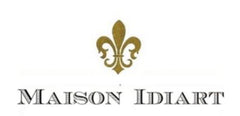
Maison Idiart is a wine négociant based in Bordeaux and established in 2013. Nicolas Idiart, winemaker and founder of Maison Idiart, grew up with a passion for wine, something that he shared with his father and grandfather.
He graduated from Bordeaux winemaking school in Blanquefort at 19 years old. Nicolas' love for Loire wines took him to work in Chinon, Touraine and Muscadet. He also had experiences in Australia and New Zealand. After several years travelling the world, he decided to shift his work in the industry and work in sales, focusing in North America.
At 33 years old, after 7 years working in sales, he decided to go back to winemaking with an artisan approach, making small batches of handcrafted wines.
- Red Wine
- Grenache
- Organic, Sustainable, Vegan-Friendly
- Dry
- Full Bodied
- 750ml
- 14.5% alc./vol
About the Winery
Pago Aylés

Pago Aylés was founded by Federico Ramón, who in 2003 began his dream of classifying this unique land as the first Vino de Pago in the Aragon region. In the Spanish wine quality pyramid, the Pago stands as a top tier or grand cru winery. Just before Federico died, his dream came true in 2010, as Aylés became the 10th Vino de Pago in Spain.
Today his three children continue to produce wines from this special land. The vineyard site has a long history of winemaking, dating back to the 12th century by Spanish monks. Influenced by the River Huerva and the Monte San Pablo mountain, the soil is a mixture of clay, limestone and chalk – ideal for making high-quality wine. Caves, ravines and old river beds can be found all over the estate, which is brimming with wildlife.
Press Reviews
Wine Align
90 points - Michael Godel
Unexpected would indicate that strange things are forecast to occur but this garnacha from the large and historical Finca Aylés estate in Cariñena pretty much does the expected. Delivers dark varietal fruit with a mineral streak as salty as it is firm. Crunchy garnacha, full bodied and flavoured for the foreseen and well, expected. Garnacha of empowerment, helping consumers trust themselves and their palates and opinions, ultimately enabling them to confidently make wine purchasing decisions. Drink 2025-2027. Tasted March 2025.
90 points - David Lawrason
From a large and distinguished vineyard, this is a very smart and delicious garnacha. The ripe sweet almost candied nose black cherry, pomegranate juice is also quite floral. Oak is nicely in the background with a hint of mocha and spice. It is quite full bodied and rounded, but also has enough warmth and acidity to give it a sense of freshness and stability. The length is excellent. Might be a bit confected for some. Chill a bit. Last tasted Jan 2026
- Red Wine
- Graciano, Grenache, Tempranillo
- Sustainable
- Dry
- Medium Bodied
- 750ml
- 14.5% alc./vol
About the Winery
Bodegas Exopto
Exopto is Latin for “to long for” or “to desire greatly” and it is the dream of Frenchman Tom Puyaubert and his family to endeavor to craft and assemble wines where the whole adds up to more than the sum of their parts. Tom relocated from France to Rioja in 2000 after falling in love with the region and working for the French cooperage Saury as its Spain representative.
When Tom began Exopto, he wanted to do a project that produced wines within this historical context of Rioja - combining both worlds in a unique way. His idea is to remain true to the blending of the principle grape varieties and to do so from the best terroirs/villages for those varieties crossing sub-regions of Rioja. Each wine though, has a majority of a different principle grape – showcasing that variety specifically within the context of a blend. The viticulture and winemaking model is that of the “vigneron” days – small plots of vines in the extremes, wild yeast fermentation in concrete or old oak vats and then aging in a way to showcase the fruit, minerality and terroir not the wood or aged flavours that people often associate with Rioja.
Press Reviews
Wine Align
91 points (2021) - John Szabo
A blend of garnacha, tempranillo and graciano grown at around 500m in the Sierra de Cantabria, this is aged exclusively in concrete and thus a long way from what many would consider the 'traditional' style of Rioja. I like the freshness and vibrancy allied at the same time to ripe, plush fruit spanning both the red and black spectrum. Tannins are supple and acids balanced and creamy, leading into a long, gently saline finish. Concentration and depth, as well as complexity overall, far exceed expectations in the category. Well made wine from an evidently superior vineyard, delicious now, or hold 3-4 years. Tasted January 2024.
91 points (2021) - Megha Jandhyala
This is a charming Rioja, a blend of garnacha, tempranillo, and a small amount of graciano. I like the bright, supple red fruit here and the pretty floral and savoury herbal notes. The palate is lively and supple, with fine-grained tannins and juicy acids. Fresh, streamlined, and with a sense of lightness that is appealing, this wine is ready to drink, though it can also be cellared for a couple of years. Tasted January 2024.
- Red Wine, White Wine
- Carignan, Chenin Blanc, Grenache, Sangiovese, Sauvignon Blanc, Syrah
- Sustainable
- Dry
- 750ml
About the Winery
Clos del Rey
 In the foothills of the Pyrénées Mountains, not far from the Mediterranean sea, Clos del Rey is situated in the high altitude hills over the tiny village of Maury. The estate has been owned and farmed by the Montagne family for generations. The vineyard itself is nestled among a protected area of garrigues (rosemary and thyme). The vines of up to 120 years old are allowed to grow natural and untrained, in the old-fashioned way, known as the goblet or bush style. However, it is what lies beneath the vineyard that lends much of the character and complexity found in their wines. Julien Montagne makes complex wines that truly represent his vineyards and his Catalan roots--you can almost smell the sun in the glass.
In the foothills of the Pyrénées Mountains, not far from the Mediterranean sea, Clos del Rey is situated in the high altitude hills over the tiny village of Maury. The estate has been owned and farmed by the Montagne family for generations. The vineyard itself is nestled among a protected area of garrigues (rosemary and thyme). The vines of up to 120 years old are allowed to grow natural and untrained, in the old-fashioned way, known as the goblet or bush style. However, it is what lies beneath the vineyard that lends much of the character and complexity found in their wines. Julien Montagne makes complex wines that truly represent his vineyards and his Catalan roots--you can almost smell the sun in the glass.
Pearce Predhomme

Pearce Predhomme is a collaboration of like-minded individuals from around the globe. Founded with a mission to build and import wines from our favourite appellations while offering an unequaled value/quality ratio for the sommeliers & wine buyers in Ontario. This is a project between Toronto Sommelier and entrepreneur Will Predhomme and Ontario wine importer Nicholas Pearce. They have partnered with Radford Dale in South Africa and NorthWest Wine Co. in Oregon to create these special cuvées.
Villa Calcinaia
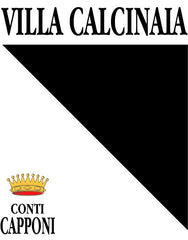
Villa Calcinaia is situated in the centre of Chianti Classico near the town of Greve-in-Chianti. This historic estate has been home to the Counts Capponi since 1524, and is maintained by Sebastiano Capponi and his brother Niccolo. In 1992, Count Sebastiano Capponi became the first in the history of the family to manage the winery personally, giving a new life to the vineyards and the cellar.
The family owns 200 hectares of land planted with olive trees, vines and pine trees. Organic farming is the standard at Villa Calcinaia where 75 acres of vineyard are planted with Sangiovese, Merlot, Canaiolo, Grechetto, Vernaccia, Trebbiano, and Malvasia. Through every vintage, the wines are crafted with food in mind. They are balanced, elegant, perfumed, and savoury yet refreshing with restrained vigour and intensity that ensures longevity.
- Red Wine
- Grenache
- Natural, Sustainable, Vegan-Friendly
- Dry
- Full Bodied
- 750ml
- 13.8% alc./vol
About the Winery
Bodegas Puiggròs
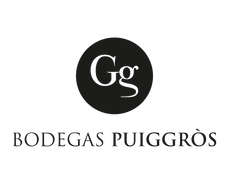
Since 1843, the Puiggros family has been producing wines from their own vines in the Odena region of Catalunya for the family and close friends. Over generations they had come to realize that their vineyards and techniques were something worth sharing with the world. A sincere dedication to the terroir in their zone and the indigenous varieties that grow there, allows them to constantly discover ways to unlock all of the magic that lies within their land.
Starting with conscious and clean farming in the vineyard, they hand-harvest only the best fruit for their production, and ferment each vineyard separately in varying vessels to accentuate what the vines have to show; some in stainless steel, and many in clay amphora of differing sizes. All the while seeing very little sulfur use (if any) until bottling. Puiggros is pushing the quality of northeastern Spain's wines forward, and doing so in a clean and unique way.
Press Reviews
WineAlign
91 points - David Lawrason
Exedra Negre is 100% Garnatxa (Catalan for grenache) planted on limestone and clay soils at 500 meters. Part is fermented in large concrete, part in amphora. It pours fairly pale but bright ruby. The aromas are classic grenache strawberry jam with fine, subtle array of tobacco, pepper and herbs in the background. It is medium weight, fresh, balanced and almost refined - not really showing its 14.5% alcohol except for a slight kirsch flavour to the fruit on the finish. The length is excellent. Chill a bit. Tasted January 2026.
91 points - Michael Godel
Warm vintage for garnatxa aged in clay-pot (amphora) from Odena’s limestone and clay soils at 500m in the shadow of the Montserrat massif. Consistent sweet red candied fruit aroma, always alluring and quite naturally so. The amphora does not take over the character but seems to simply allow the land to do the talking. Drink 2026-2029. Tasted January 2026.
90 points - John Szabo, MS
Pure grenache vinified and aged in amphora, the wine shows oxidative aromatics, candied/dried fruit and shoe polish, more advanced than one would hope for at this relatively young age. The palate is nonetheless, silky-smooth and broadly appealing, soft and round as it is, generous without heaviness. I like the saline nature that encourages another sip and brings the fruit and wild herb flavours into sharper relief. Acids are equally helpful in framing the ensemble. In the end it works nicely; drink over the near term to capture the fading freshness. Tasted January 2026.
- Red Wine
- Grenache, Sangiovese, Tempranillo, Trebbiano
- Organic, Sustainable
- Dry
- 750ml
- Red Wine
- Grenache, Syrah
- Sustainable, Vegan-Friendly
- Dry
- Residual Sugar: 3.00 g/l
- Medium Bodied
- 750ml
- 14.50% alc./vol
About the Winery
Domaine Andre Aubert
At the very heart of the Rhône Valley, at the northerly tip of the Southern Rhône, lie the vineyards of Grignan-Les-Adhémar. The chances are you haven’t heard the name before, few people have, but the wines are worth seeking out. It’s not a new wine region – vines have been planted here since around 500BC but it is a new name (formerly known as Côteaux-du-Tricastin). Domaine André Aubert, has been formed over decades and today comprises of more than 280 hectares spread from north to south of the prestigious Southern Rhone Valley on the appellations Côtes du Rhône, Côtes du Rhône villages, Visan, and Grignan-les-Adhémar.
Press Reviews
James Suckling
90 Points
A medium-bodied red with blackberries, currants, herbs and baking spices on the nose. Fine tannins with a juicy core of berries and peppercorns on the palate and a flavourful finish. Grenache, syrah and mourvedre. Drink now.
- Red Wine
- Carignan, Grenache
- Sustainable
- Dry
- 750ml
- Red Wine
- Grenache
- Organic, Sustainable
- Dry
- 750ml
- 12.5% alc./vol
About the Winery
Domaine Peter Sichel
Tucked away in a hidden valley in a remote corner of the Languedoc-Roussillon lies a truly special place: the village of Cucugnan. Historically, there was much wine produced here, given its isolated location, but gradually the local people moved away to the towns. There are now just 130 people living in the village. As the vineyards were left mostly abandoned, the local flora and fauna were permitted to thrive. Cucugnan became a unique area, full of biodiversity, which shines through in the rare plants and flowers that grow there today.
Peter Sichel (of the Bordeaux négociant family) first discovered this valley on a road trip with a friend in the 1960s. He was so spellbound by the place that he bought a house there and, in 1988, planted a vineyard. The project grew, albeit slowly, but the arrival of Peter’s thoughtful and environmentally inspired grandson, Alexander Sichel, has turned the Domaine Peter Sichel project completely around.
Since 2019, Alexander has converted the estate to organics and biodynamics, achieving organic certification in 2022. Furthermore, he is committed to supporting polyculture in and around the vineyards, even enlisting the help of a PhD programme from a Dutch university to identify the incredible array of plant life in the vineyard.
Alexander’s grandfather planted the vines between 30-40 years old. Parcels of Grenache, Syrah, Carignan, and Roussanne lie mostly on the best slopes of the valley. Starting from 350-500 metres’ altitude, these slopes have very little topsoil; the roots go almost straight into the bedrock. The viticultural team here has done much work to focus on the unique characteristics of each parcel to express the terroir of this stunning valley in the most authentic way.
Press Reviews
WineAlign
92 points - Megha Janghyala, S.J.D., DipWSET.
This is a light red wine or perhaps a very dark rosé but either way it is charming in an unaffected, guileless way. Grapes are steeped in their skins for a short period of time, just 2.5 days, before they are pressed. The separated juice finishes fermentation in a small concrete tank. As the producer recommends, I would drink this wine over the next couple of years, while it is still young and fresh. I appreciate the clarity of fruit on the nose and palate here - red cherries, strawberries, raspberries, alongside fresh herbs. The palate is sprightly and flavourful, with impalpable tannins and cheerful acids, while the finish is long and perky. Tasted March 2025.
91 points - Michael Godel
The follow-up Montanha to what was a most excellent 2023 representing the hills of Cucugnan. Lesser stature as grenache but only in relative terms when you consider the bigger and more impressive Terre Rouge. Works the clay and limestone terroir with Sichel’s infusion style of winemaking to modernize and prepare grenache in the most succulent way possible. As you will find here but also take note of the very modest 12.5 percent alcohol frame which feels even lighter and brighter in the early freshness of a wine indicative of 2024. Some will bemoan the lack of heft and stuffing while others will bask in the light, vim, relish and vigour of this transparent and trim varietal wine. Drink 2025-2028. Tasted March 2025.
91 points - John Szabo, MS
The 2024 Montanha, "Mountain", sits somewhere between light red and deep rosé in colour like its predecessor, made as it is from a short 'infusion', 2.5 days, of unspecified ''mountain grapes'. ("raisins montagnards") grown in the heart of a wild, natural park with parcels surrounded by forests and biodynamic farming applied. The nose is open and fragrant, very fruity and pure, with lovely fresh strawberries and bright sour cherry flavours, also rose petals and orange peel, inviting and engaging. The palate is light and fresh but also flavourful, with impeccable balance and sapidity. A great project from the Sichel family to follow; drink or hold 2-3 years - this should turn nicely savoury in time. Tasted March 2025.
90 points - David Lawrason
This is an ultra-pale grenache from old vines at high altitude. It has a fragrant, pretty nose of red rose, candied strawberry, wet stone and a touch of hay. It is medium-full bodied, quite, taut and lean yet very flavourful. Very firm and sour edged. The length is excellent. Tasted March 2025
- Red Wine
- Grenache, Syrah
- Organic, Sustainable
- Dry
- Residual Sugar: 2.00 g/l
- Full Bodied
- 750ml
- 14.00% alc./vol
Press Reviews
Wine Enthusiast
90 Points — Reggie Solomon
This is a wine to pair with an evening of contemplation. Blackberry, black plum and dried black cherry swing dance in lockstep on the nose with an undercurrent of forest floor that lends added depth. Silky in texture, the wine flirts with Darjeeling tea and a dew-glistened earthy core that shines.
- Red Wine, Rosé Wine, White Wine
- Garganega, Grenache, Lambrusco di Sorbara, Nero d'Avola, Pinot Nero, Pinot Noir, Syrah
- Dry
- 750ml
About the Winery
Azienda Agricola Tessari

The Tessari family have Soave in their blood. For three generations they have been extracting delectable wine from the well cared for vines of their Monteforte d’Alpone vineyards. With only a little over a hectare of Garganega grapes in the prestigious volcanic solis of Soave Classico, Antonio Tessari hand dug his cellar back in 1933 and started the legacy that continues today with his grandchildren: Germano, Antonio and Cornelia.
From vineyard to bottle, these three siblings oversee it all; with unwavering respect for tradition, quality and passion for the art of winemaking. The volcanic soils of the hillside are rich with basaltic rocks and clays, which guarantees the health of the plant and the promotes the mineral and floral aromas that are characteristic of the Garganega grape. Truly artisanal wine making at it’s best.
Cantine Barbera
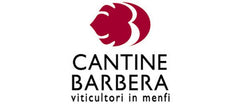
Cantina Barbera is located in the Menfi Coast, on the west coast of Sicily. The vineyards are about one mile from the Mediterranean Sea: an uncontaminated deep blue sea, facing South, where low cliffs and sandy dunes create a beautiful environment protected by the Belice River Natural Reservation Fund.
A third generation farmer, Marilena Barbera farms the Inzolia that her grandfather planted in the 20's, just as she attends to the native varietals that are the new frontier of her own generation: Perricone, Nerello, Alicante, Nero d'Avola and Grillo. Marilena makes her wines praticticing organic farming and natural winemaking, while paying utmost respect to Menfi's terroir.
"At the winery, I chose to work only with spontaneous fermentations and to adopt non invasive winemaking practices, in order to respect the unique personality of Sicilian native grape varieties and the beautiful land to which they belong."
Mas Carlot

Mas Carlot is situated in the south of the Rhône Valley, extending across 76 hectares of pebbly land southeast of Nîmes. Originally a 17th century farm, this beautiful estate was resurrected in the 1960's by the Blanc family—it is currently run Cyril Mares of the neighbouring and equally reputable property, Mas Bressades.
The appellation of Costières de Nîmes used to be considered part of eastern Languedoc but the climate, soil, topography and wine are far closer to those just over the river in the Southern Côtes du Rhône. It is now a region very much on the up and is widely recognized as a great source of excellent value wine.
- Red Wine
- Cabernet Sauvignon, Carignan, Cinsault, Grenache, Monastrell, País
- Sustainable
- Dry
- Residual Sugar: 2.00 g/l
- Medium Bodied
- 750ml
- 12.90% alc./vol
About the Winery
Garage Wine Co.

Garage Wine was literally started in a garage in 2001, by Etobicoke expat Derek Mossman and his wife Pilar Miranda. Since then, the dynamic duo handcraft wines from a series of individual vineyards located in the Maule and Itata Valleys, in the south of Santiago, Chile.
Garage Wine Co makes wines from a series of individual parcels, small lots / bottlings of 8-22 barrels that include a series of dry-farmed field-blends of Carignan, Garnacha, Monastrell, País, Cinsault and Cab Franc grown on pre-phylloxera rootstock with small farmers in the Maule and Itata. Each wine is from a 1-2 hectare parcel in a different place.
Over the years working in the community they have raised a veritable posse of vineyard hands whose skills are working the vineyards the old way / the traditional way– originario. The vineyards are on the old coastal range of mountains closer to the Pacific and have granitic soils with cracks for roots to get deep down into.
When GWCo. speaks of the provenance of these wines they mean more than just the geological terroir. Derek and Pilar think the farming practices that have evolved over generations have as much to do with the wines’ personalities as the soils. All the wines are made by hand with native yeasts in small tanks, punched down manually and pressed out in a small basket press. GWCo is still very much a DIY operation and we still tow much of the crop back to the winery in trailers behind trusty pickup trucks 2,000 kilos at a time.
Press Reviews
Catad´Or Wine Guide
93 Points - Alistair Cooper MW
Spiced nose with dark fruits and juicy red fruits. The palate has wonderful acidity, freshness, and cherry notes—easy and fresh with real drive. Black olives on the long finish. Ripe, fresh, and baked fruits on the spicey finish.
- Red Wine
- Grenache, Mataró, Syrah
- Sustainable, Vegan-Friendly
- Dry
- Residual Sugar: 3.00 g/l
- Medium Bodied
- 750ml
- 14.50% alc./vol
About the Winery
Sister's Run

Sister’s Run is serious fun. Their talented young winemaker Elena wears steel cap work boots every day of course, but carries a pair of high heels in back of the ute, only for emergencies, like last minute invitations to accept trophies at gala wine show dinners and the like.
Returning from a ‘knees-up’ at midnight, mid vintage, she managed to kick off one high heel and slip back into a boot’ just as the cellar crew cried out, ‘Run Sister Run’; and exactly then their winemaker and label took flight!
The stiletto and boot are Sister’s Run; an independently owned and operated winery with a fierce commitment to making the best wines they can from family vineyards. They don’t take ourselves as seriously as we take our wines, but agree with Elena, all you need to know about wine is the five ‘V’s and remember the best wine is the wine you like.

















